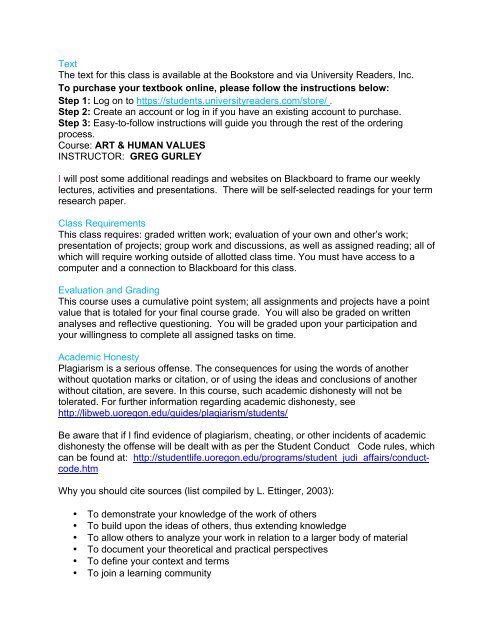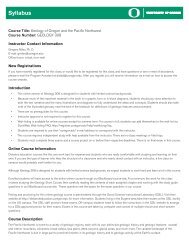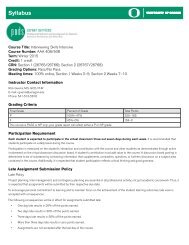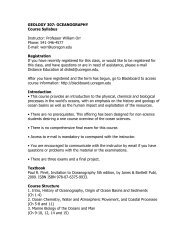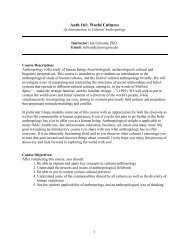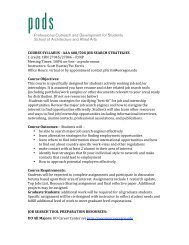Course Syllabus - University of Oregon
Course Syllabus - University of Oregon
Course Syllabus - University of Oregon
Create successful ePaper yourself
Turn your PDF publications into a flip-book with our unique Google optimized e-Paper software.
TextThe text for this class is available at the Bookstore and via <strong>University</strong> Readers, Inc.To purchase your textbook online, please follow the instructions below:Step 1: Log on to https://students.universityreaders.com/store/ .Step 2: Create an account or log in if you have an existing account to purchase.Step 3: Easy-to-follow instructions will guide you through the rest <strong>of</strong> the orderingprocess.<strong>Course</strong>: ART & HUMAN VALUESINSTRUCTOR: GREG GURLEYI will post some additional readings and websites on Blackboard to frame our weeklylectures, activities and presentations. There will be self-selected readings for your termresearch paper.Class RequirementsThis class requires: graded written work; evaluation <strong>of</strong> your own and other’s work;presentation <strong>of</strong> projects; group work and discussions, as well as assigned reading; all <strong>of</strong>which will require working outside <strong>of</strong> allotted class time. You must have access to acomputer and a connection to Blackboard for this class.Evaluation and GradingThis course uses a cumulative point system; all assignments and projects have a pointvalue that is totaled for your final course grade. You will also be graded on writtenanalyses and reflective questioning. You will be graded upon your participation andyour willingness to complete all assigned tasks on time.Academic HonestyPlagiarism is a serious <strong>of</strong>fense. The consequences for using the words <strong>of</strong> anotherwithout quotation marks or citation, or <strong>of</strong> using the ideas and conclusions <strong>of</strong> anotherwithout citation, are severe. In this course, such academic dishonesty will not betolerated. For further information regarding academic dishonesty, seehttp://libweb.uoregon.edu/guides/plagiarism/students/Be aware that if I find evidence <strong>of</strong> plagiarism, cheating, or other incidents <strong>of</strong> academicdishonesty the <strong>of</strong>fense will be dealt with as per the Student Conduct Code rules, whichcan be found at: http://studentlife.uoregon.edu/programs/student_judi_affairs/conductcode.htmWhy you should cite sources (list compiled by L. Ettinger, 2003):• To demonstrate your knowledge <strong>of</strong> the work <strong>of</strong> others• To build upon the ideas <strong>of</strong> others, thus extending knowledge• To allow others to analyze your work in relation to a larger body <strong>of</strong> material• To document your theoretical and practical perspectives• To define your context and terms• To join a learning community


